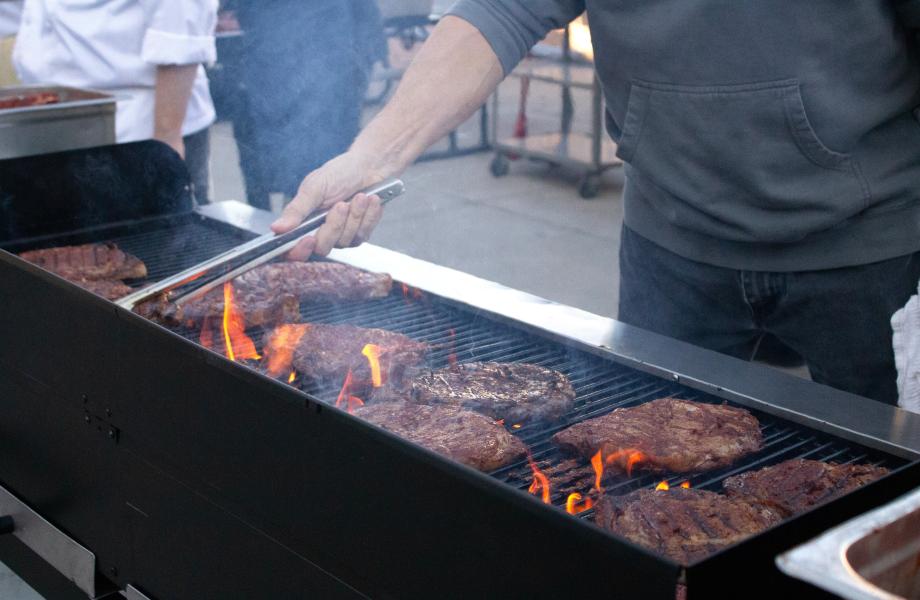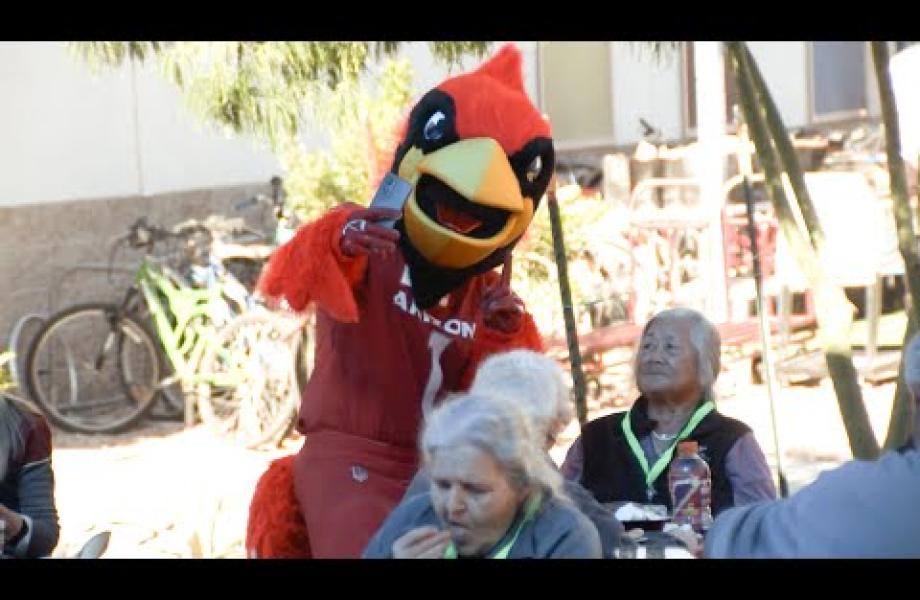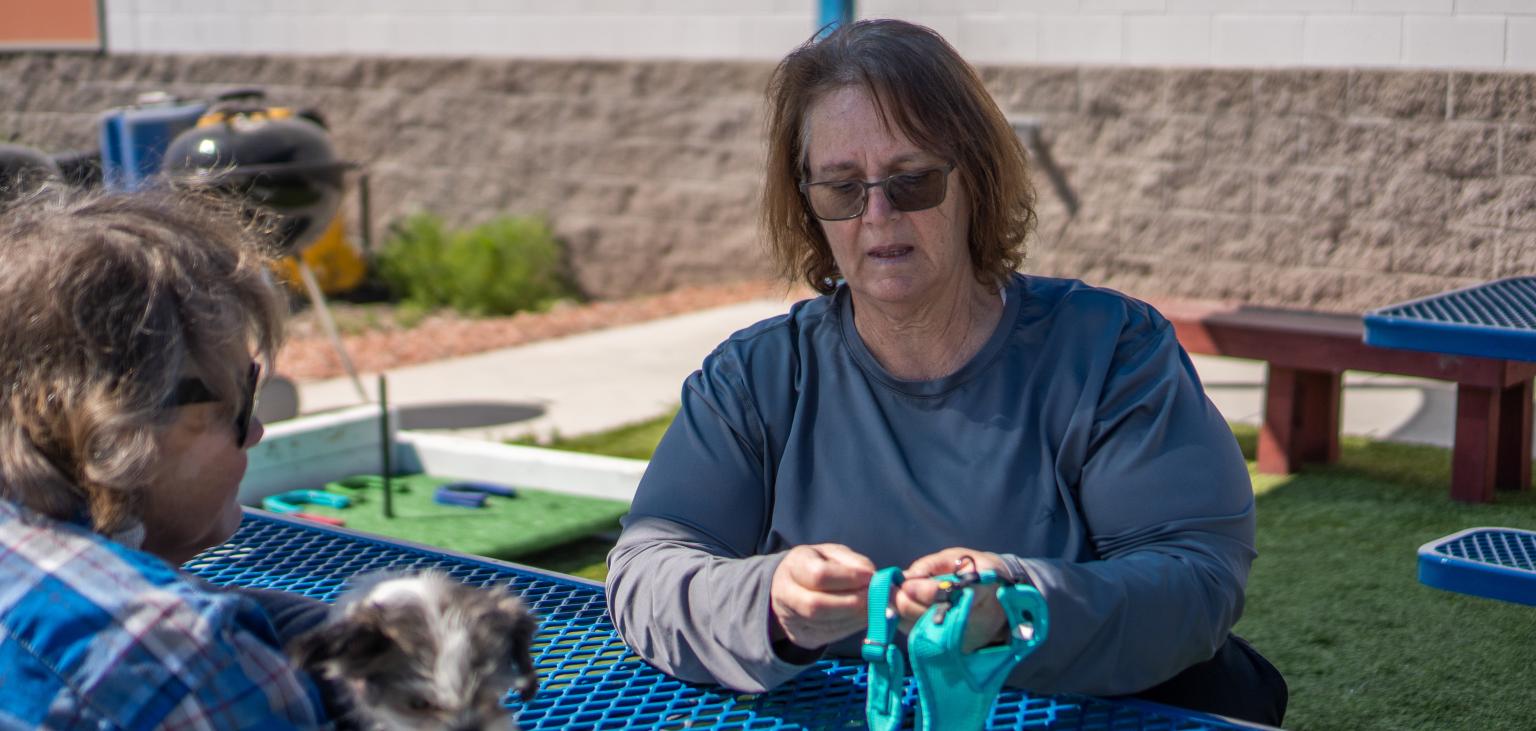
Making shelter life better for humans with furry friends
Terri Musso-Carusone walked out onto the back field accompanied by her German-Shepherd-mix, Sam. He’s one of the most skittish dogs in Ozanam Manor. He eyes everything with a deep suspicion, and he’s known for barking at anything or anyone that gets anywhere near him or Terri. It’s clear he’s seen a lot in his days, and so has Terri.
He barked at Dianne Decker, an animal behaviorist volunteering with SVdP, as she approached them. Terri immediately apologized for Sam, then yelled at him to stop.
“Don’t apologize,” Dianne said. Terri nodded, assuming Dianne was being nice, but she wasn’t. It was an instruction.
Dianne explained to Terri a new method for responding to Sam when he gets scared.
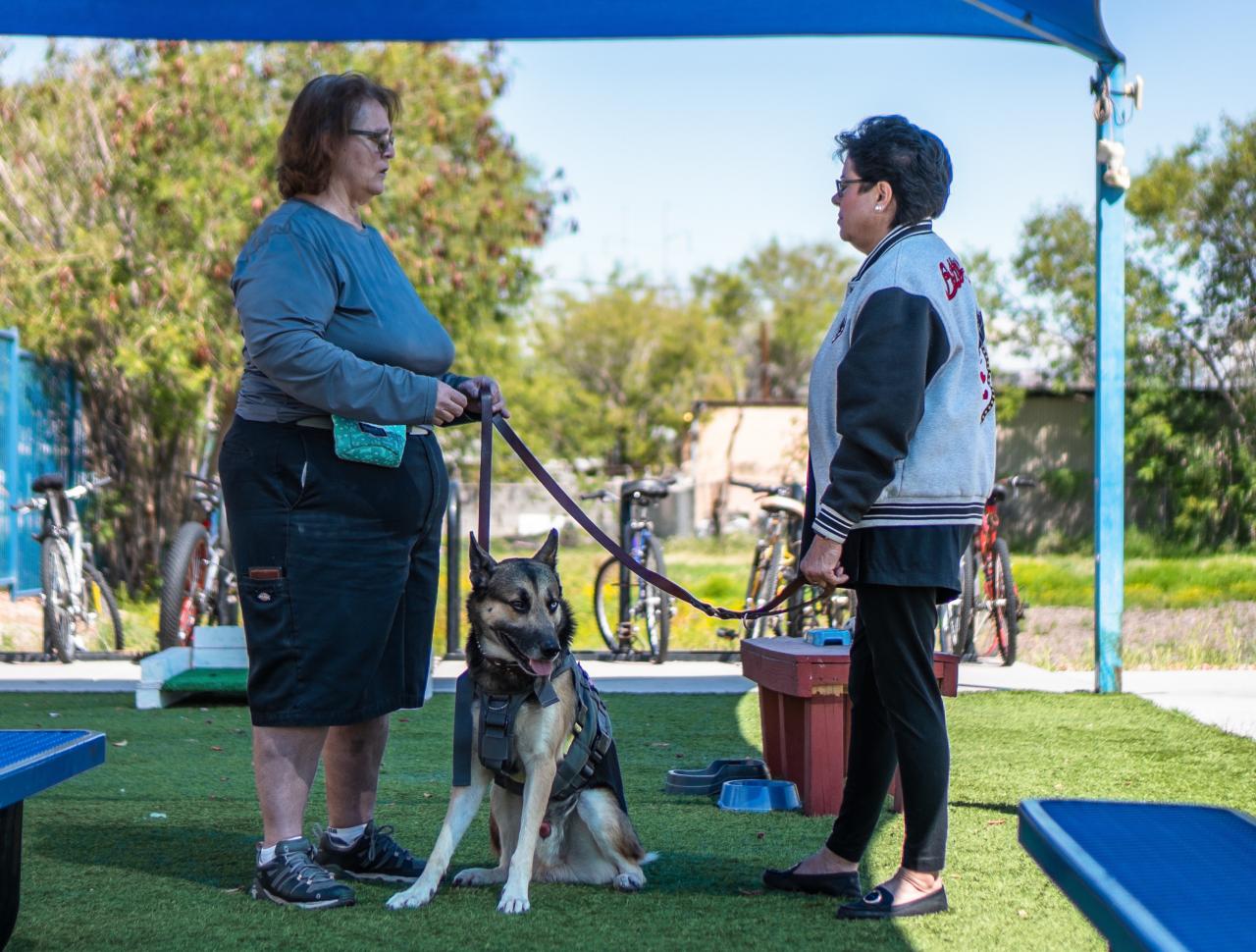
You need to know how to identify that so you can preempt the behavior,” Dianne said. “You need to know how to act in this scenario. So when he looks to you for help, you've got to plan. You're not just reacting because the dog is.”
She explains that, because Sam is with Terri close to 24/7, he is going to read her emotions to each situation and act accordingly. If she acts tense, Sam will be tense; but if she is relaxed when a new person walks up, Sam will relax.
“One of the goals is to build confidence in the dog, but also the person,” Dianne said.
Terri is a guest at Ozanam Manor (Oz), SVdP’s transitional shelter for those over 50, veterans, and those with disabilities. She had to spend months on the street, where her only companion was Sam.
Terri said she kept Sam with her during this difficult time for a very simple reason:
“I just fell in love with him,” she said. “Also companionship, being a woman alone on the street... I had a really rough time on the street. He protected me a couple times... And I just I can't imagine life without him anymore.”
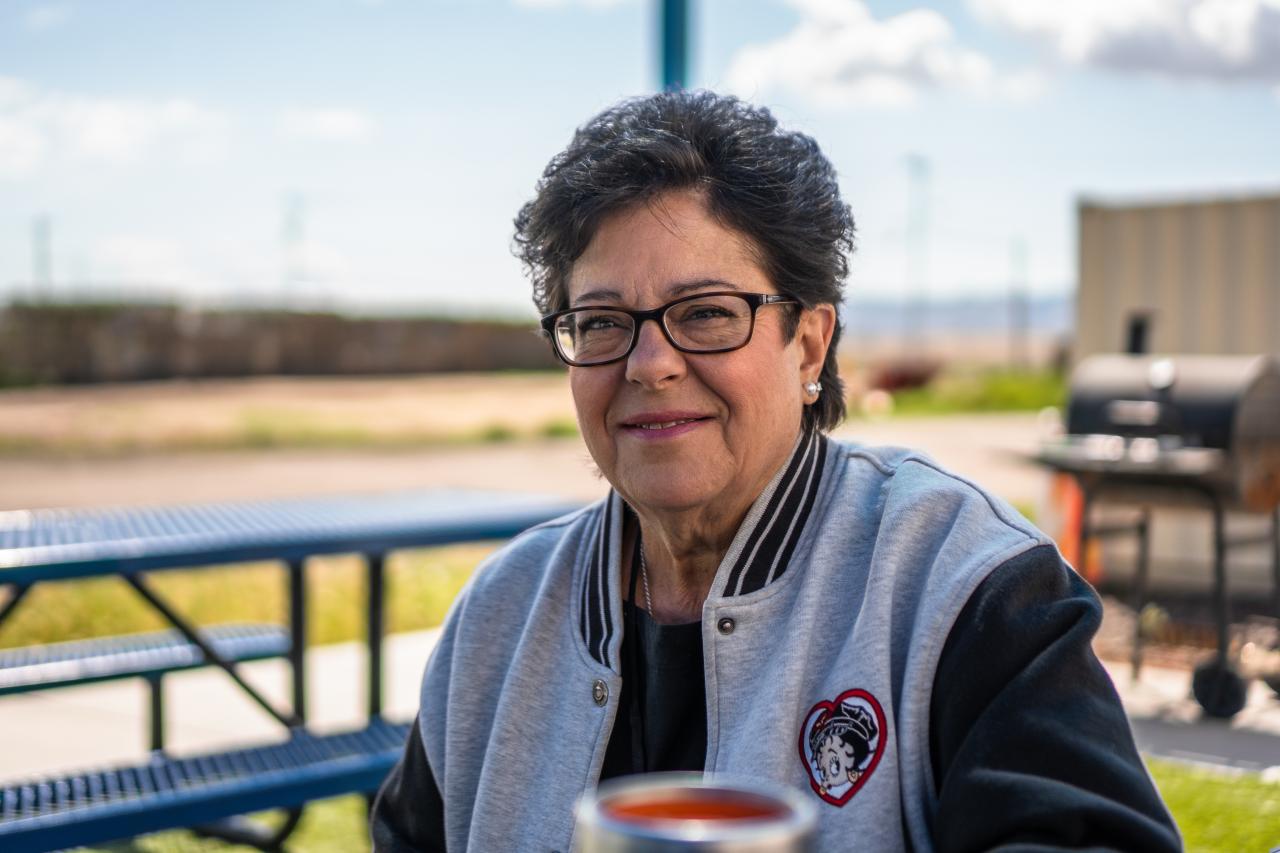
After enduring so much hardship, it becomes obvious why Sam would be so distrustful. That’s where Dianne comes in.
As an animal behavior specialist, Dianne helps to train dogs to behave better and to train owners on how to better take care of their furry friends. Thanks to generous funders, Dianne has been contracted to work for SVdP’s Companion Animal Program (CAP) twice a month to help facilitate a peaceful environment for animal and human alike in SVdP's shelters.
Terri and Sam worked with Dianne for a few weeks, and Terri says she can already see a difference.
“He’s not so skittish [anymore]. And he just seems a little bit more relaxed, because she's taught me how to be relaxed with him. And so that's been really, really good. And he does well when he works with her,” Terri said. “I think it's made a difference. I know it's made a big difference for me and Sam.”
CAP is SVdP’s program to help pet owners stay safe, together and sheltered with their pets. They do this by addressing a growing obstacle for many people experiencing homelessness: Their pets.
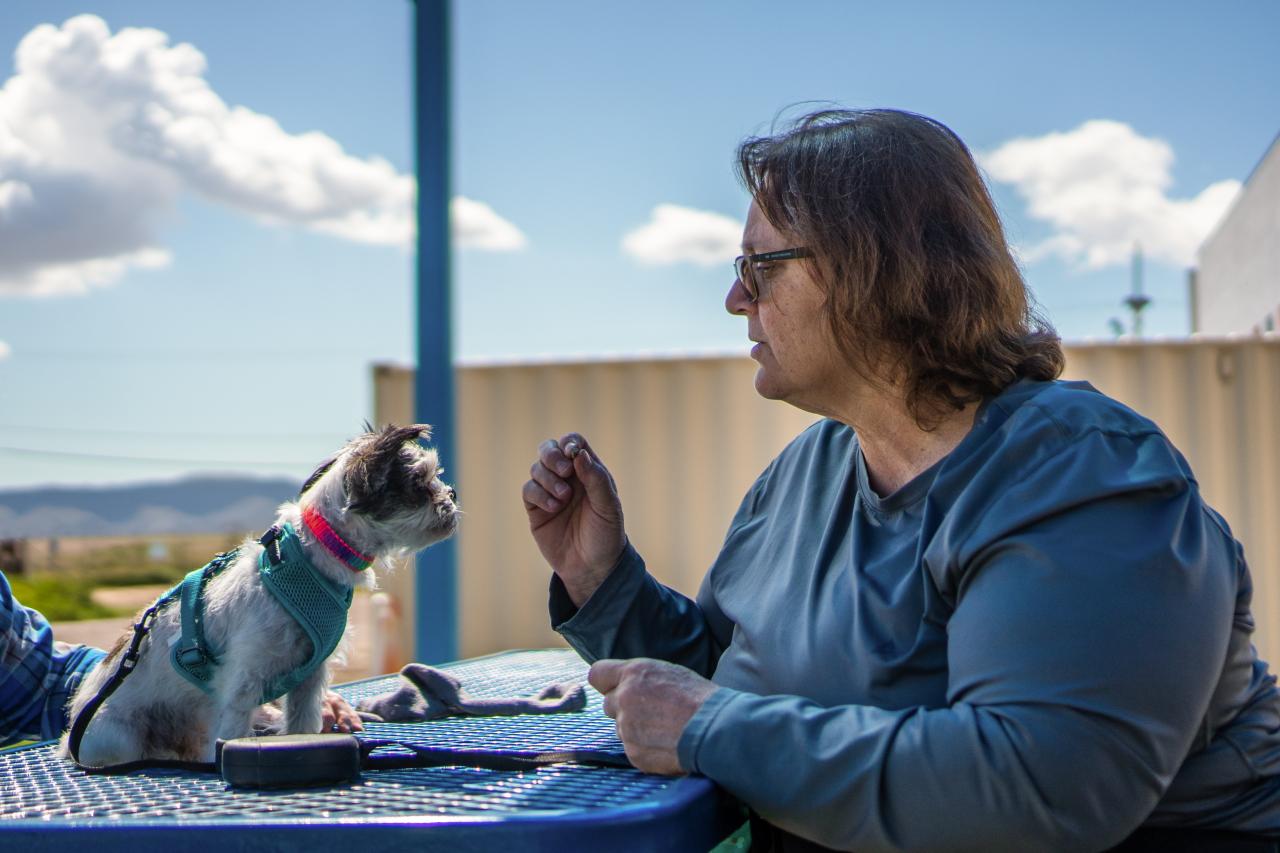
There are many cases of people not being allowed into shelter or choosing to not enter shelter because their animal isn't allowed with them. When someone is alone and on the street, often their pet is their only friend and companion — the most important relationship in their life at that time.
“What I'm learning is that if they were out on the street, that dog has a completely different role in that person's life than a dog that we come home to at our apartment,” Dianne said. “That role is as a companion, a protector, a shoulder to cry on. Somebody to hug when I'm scared.”
SVdP alleviates this problem by allowing shelter residents to keep their pets, and CAP provides the necessary resources to take care of them, such as beds, food, collars, and more. They also partner with other veterinary professionals and animal agencies to take care of other, usually more expensive services, like at their quarterly animal wellness clinic where volunteers provide shots and deworming.

